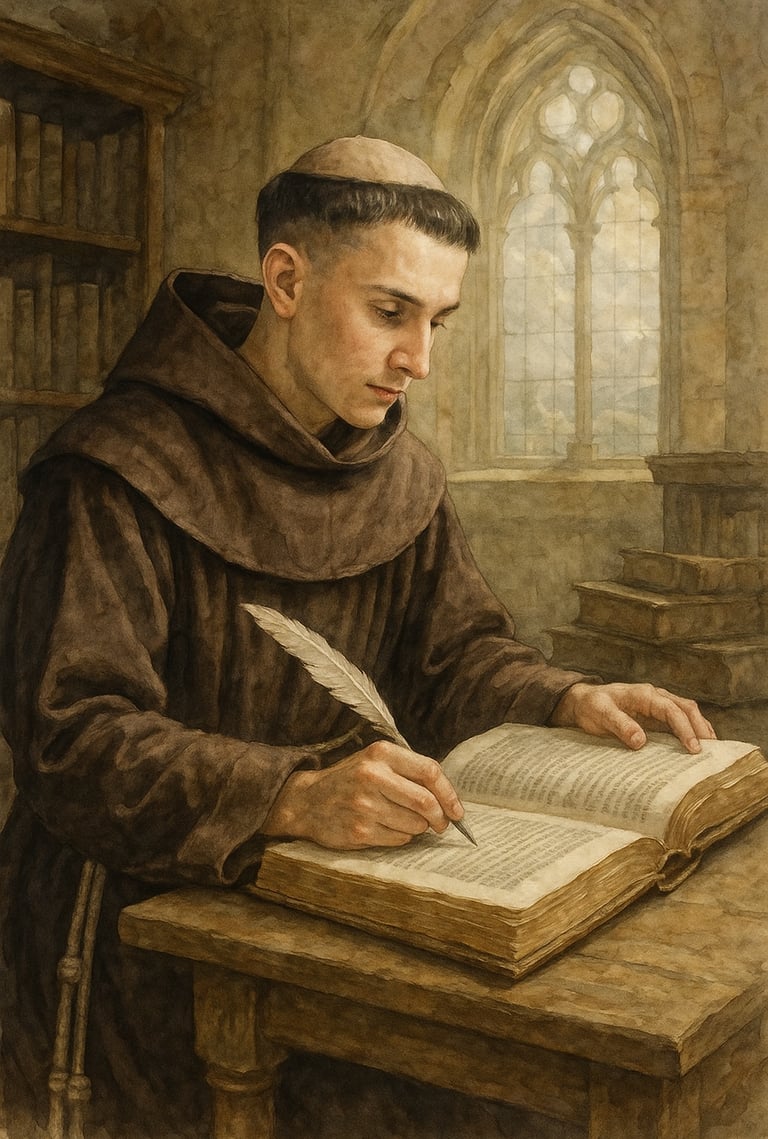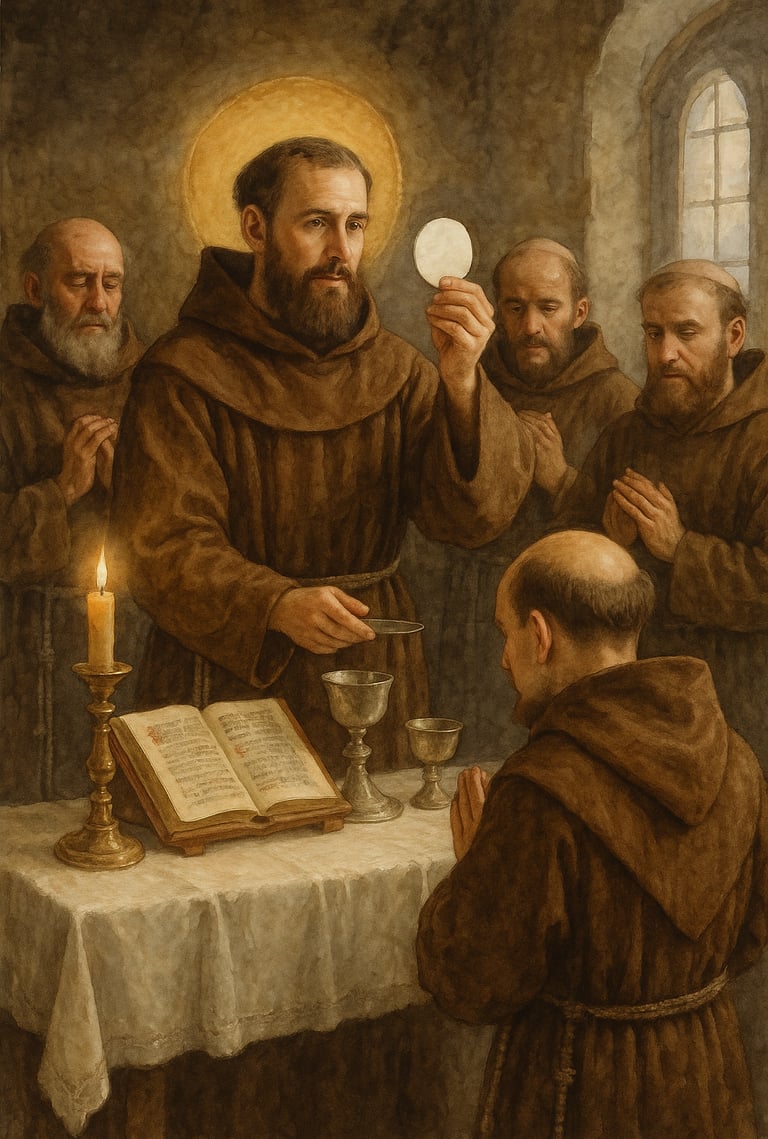St. Lawrence of Brindisi: The Scholar with a Crucifix
Priest and Doctor of the Church
Halo & Light Studios
7/20/20253 min read


Click Link for a reel of Daily Dose of Saints and Faithful Art:
https://youtube.com/shorts/_R9DWWkshOU?feature=share
In a century ablaze with conflict—when kingdoms clashed and the Church struggled for unity—one barefoot friar stood firm. Not with a sword, but with Scripture, a crucifix, and the courage of a saint. His name was St. Lawrence of Brindisi (1559–1619), and his life is a testament to what God can do with a soul fully surrendered.
Born Giulio Cesare Russo in Brindisi in the Kingdom of Naples, Lawrence lost his father at a young age and was raised by devout relatives. Even as a boy, his brilliance burned bright. Teachers quickly saw he was no ordinary child—he had a fire in his mind and soul that could not be quenched.
As a teenager, he entered the Capuchin Franciscans, taking the name Lawrence. But God didn’t call him only to contemplation. He called him to mission. By the time he was fully professed, Lawrence had mastered Latin, Greek, Hebrew, German, French, Spanish, and Bohemian. His gift for languages wasn’t for show. They became tools of evangelization. He preached to Protestants in their native tongues, debated rabbis with clarity and charity, and instructed Catholics hungry for authentic teaching in the chaos of the Reformation.
Lawrence embodied the words of Christ: “To whom much is given, much will be required.” (Luke 12:48) And he responded with his whole heart.
His superiors soon recognized that Lawrence’s talents were too great to remain hidden in the cloister. He was sent across Europe as a preacher, theologian, missionary, and papal diplomat. His sermons were so powerful that even skeptics were brought to tears. His writings—fifteen volumes in all—reveal profound theological insight, especially on the Incarnation, the Eucharist, and a deep, unwavering Marian devotion. He called Mary the “Mother of Grace”, and he urged the faithful to cling to her with childlike trust in times of trial.
Yet St. Lawrence was not merely a man of study—he was a man of holy action. In 1601, Christian forces faced annihilation by the Ottoman Turks at the Battle of Stuhlweissenburg. Lawrence was appointed as chaplain to the army. Rather than standing behind the soldiers in safety, he rode out in front—wearing his simple brown Capuchin habit, holding only a crucifix aloft, and urging the soldiers to place their faith in God. His courage ignited their spirits. They won the battle—not through military might, but through faith and fearless leadership.
This same spiritual boldness marked every part of his life. He faced down heresies, negotiated peace between warring rulers, and endured great personal hardship. He was known to rise before dawn for Mass and prayer, pouring himself out entirely for Christ and His Church.
Remember the Parable of the Talents? “To one he gave five talents, to another two, to another one—to each according to his ability.” (Matthew 25:15) Lawrence didn’t bury his talents. He multiplied them for God’s glory. “His master said to him, ‘Well done, my good and faithful servant. Since you were faithful in small matters, I will give you great responsibilities. Come, share your master’s joy.’” (Matthew 25:21)
And now we must ask ourselves: What about us? God has given you talents—not by accident, but by design. There is a mission, a calling, a divine assignment that only you can fulfill. If you bury your gifts out of fear, distraction, or comfort, the world will never witness the glory God intended to reveal through you. Heaven is watching. Eternity is waiting.
Don’t waste your talents. Set them on fire—for souls, for truth, for Christ. Because the alternative is sobering. Jesus warned of the servant who buried his talent in the ground: “Throw this useless servant into the darkness outside, where there will be wailing and grinding of teeth.” (Matthew 25:30)
St. Lawrence of Brindisi died on mission in 1619, still laboring for the Church to the very end. He was canonized in 1881 and declared a Doctor of the Church in 1959 by Pope St. John XXIII—a title reserved for the Church’s most brilliant and faithful teachers.
His feast is celebrated on July 21.
St. Lawrence, pray for us. Teach us to speak truth boldly, to love Our Lady without shame, and to pour out every gift we’ve been given—for the salvation of souls and the glory of God.


